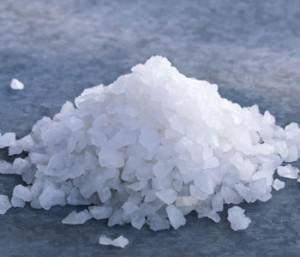 I was browsing the cereal aisle recently and looking at a non-organic cereal (bad I know). While scanning the ingredient list (something you must always do!) I noticed an ingredient I had not heard of- BHT. I was really curious what it was so I decided to do some research.
I was browsing the cereal aisle recently and looking at a non-organic cereal (bad I know). While scanning the ingredient list (something you must always do!) I noticed an ingredient I had not heard of- BHT. I was really curious what it was so I decided to do some research.
What is BHT?
Butylated hydroxytoluene (BHT) is a phenolic compound that is often added to foods to preserve fats, it is also commonly added to cosmetics. BHT is also known as a stabilizer in pesticides, gasoline, lubricants, and soaps.
My first reaction to reading this definition was- do cereals really have that much fat in them that they need a preservative for them? Last I checked generally cereals were just high in sugar not fat, so I am a little confused on why this is being added to cereals. Also, why are we eating a man-made product that is commonly put into cosmetics? That sounds like a terrible idea to me. It is also listed as one of the 12 food additives to avoid.
After reading more about BHT I got even more concerned. Turns out it can be bioaccumulative. This is generally a bad sign for a chemical or additive. The only thing you want to be bioaccumulative is vitamins. A U.S. study actually showed it to be bioaccumulative in aquatic species but is still allowed for human consumption. While each cereal serving only has a minimal amount of BHT in it, that acummulaion of BHT over time could cause serious issues. It also can cause allergies. BHT is also toxic to rats in long term studies. It caused liver, kidney and thyroid problems. Minimal studies have been done on BHT in humans, but I feel this should be a bigger priority. California, which is know for having higher standards has listed BHT as a known carcinogen. BHT is banned in baby food (thankfully) because it has been linked to caused hyper activity in children. With these limited studies that have been done on BHT, it seems there is a cause for concern and more research should be done to see if BHT is actually safe or if we are giving the food industry free will to add what they want when they want.
I also read BHT is excreted through urine, the part that doesn’t stay in your body and clings to fat. This means what is not digested is making its way into our water ways. This can mean major environmental issue down the road especially if it is bioacummulating in the many aquatic organisms that exist, especially the ones we eat. Many waste water treatment plants do not focus on cleaning the water of these types of chemicals or pharmaceuticals. Instead they focus on cleaning the water enough to meet federal guidelines.
I feel that if we know about an issue we should be more proactive about it than reactive and have another DDT issue down the line. Sustainability requires thinking about the future and how to preserve it, not living in the moment and letting future generations deal with the problem(s). Yet somehow we keep turning our heads from current issues because of a lack of initiative, not wanting to deal with the issue, or blaming it on money. Generally when you ignore an issue, it becomes more expensive than dealing with it head on. So what can we do? Make a stink about it. Pester your senator about getting some real regulations on food additives. Write to the EPA and ask them to do a study on BHT to see if there are carcinogenic effects in humans.
[Image source]

